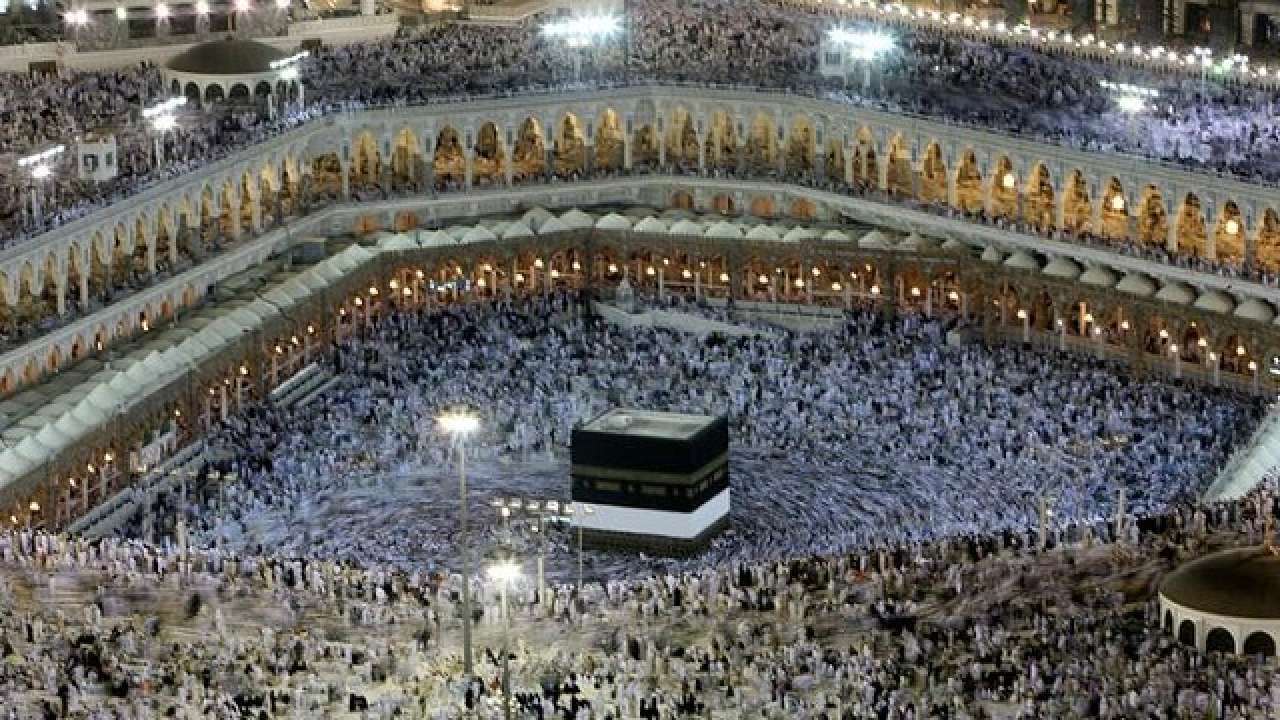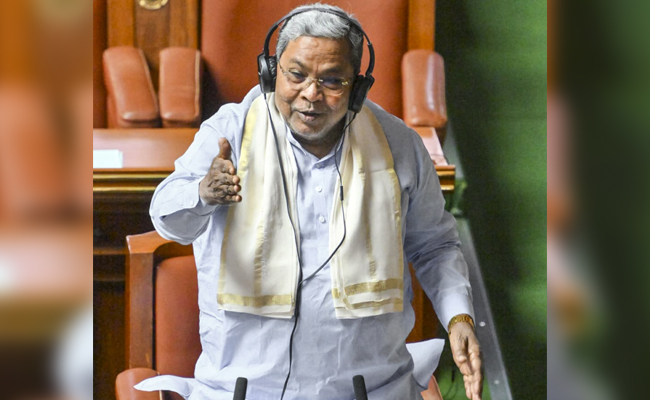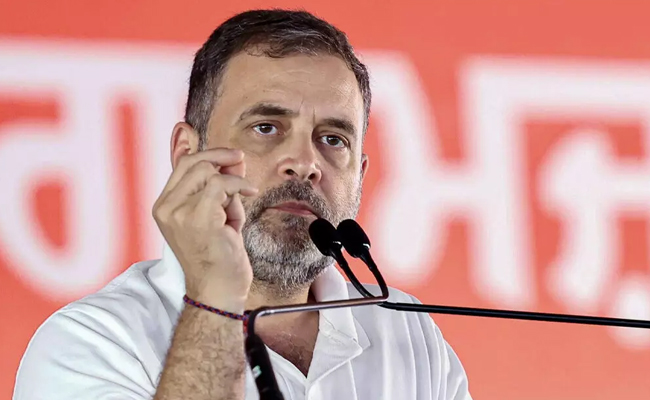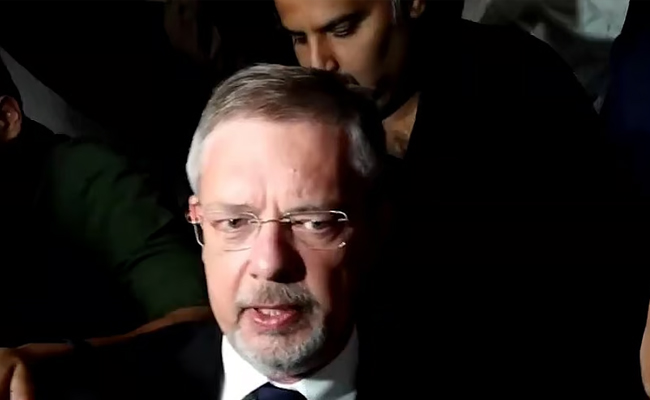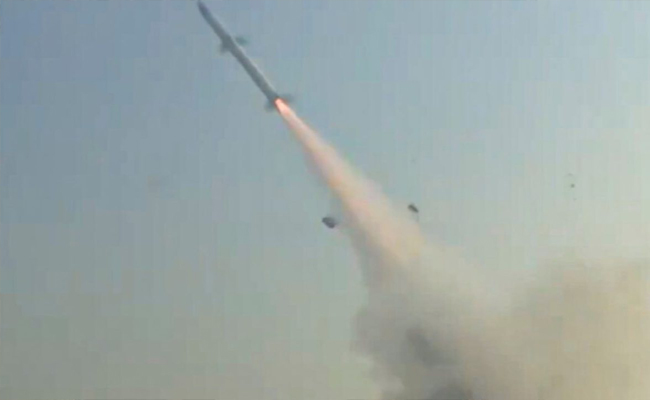Dubai: Saudi Arabia has issued guidelines for the 10,000 or so pilgrims that will be allowed to perform the hajj pilgrimage in Mecca later this month, an experience that will be unlike any before because of the coronavirus pandemic.
The pilgrims will only be able to drink holy water from the Zamzam well in Mecca that is packaged in plastic bottles, and pebbles for casting away evil that are usually picked up by pilgrims along hajj routes will be sterilised and bagged ahead of time. Pilgrims will also have to bring their own prayer rugs.
The guidelines were announced on Monday as Saudi authorities prepare to carry out a very limited hajj, which for the first time will not include pilgrims from outside the country.
Instead, the kingdom said that 70 percent of pilgrims allowed to participate this year will be from among foreign residents of Saudi Arabia while 30 percent would be Saudi citizens.
Saudi pilgrims will be selected from among healthcare workers and security personnel who have recovered from COVID-19, the illness caused by the virus. The government said their selection represents a token of appreciation for their role in providing care" during the pandemic.
Saudi Arabia has one of the Middle East's largest outbreaks of the virus, with infection rates rising by 3,000-4,000 cases daily. More than 213,000 people have contracted the virus in the kingdom so far, including 1,968 who have died.
The new guidelines also mandate that foreign residents in Saudi Arabia who want to participate in this year's pilgrimage should be between the ages of 20 and 50, and that have not performed the hajj before.
The pilgrims will have to quarantine before and after the hajj, and they will be tested for the coronavirus. Those eligible have until Friday to submit an application through the kingdom's Hajj Ministry's website.
The hajj is not only a once-in-a-lifetime requirement for Muslims but also a chance to wipe away past sins and connect with Muslims from different walks of life.
Saudi Arabia dramatically scaled back the hajj due to concerns about overcrowding at the annual pilgrimage, which usually draws 2.5 million people. The crowds move, pray and stand in extremely close proximity, often squeezed shoulder-to-shoulder, as they carry out five days of rites around Mecca.
Saudi Arabia said its decision to curtail the hajj was aimed at preserving global public health because of the risks associated with large gatherings.
Pilgrims normally crowd and push their way toward the cube-shaped Kaaba, which is Islam's holiest site and the metaphorical house of God. This year, authorities said anyone participating in the hajj will not be allowed to touch the Kaaba as part of the new safety measures.
Pilgrims this year will also have to wear masks, maintain physical distance during prayers and sleep in tents that follow guidelines on social distancing.
Let the Truth be known. If you read VB and like VB, please be a VB Supporter and Help us deliver the Truth to one and all.
Bengaluru (PTI): The Budget Session of the Karnataka Legislature will begin here on Friday, with Chief Minister Siddaramaiah presenting the Budget for 2026-27, his record 17th as the state's finance minister.
This is another feat for Siddaramaiah, who recently surpassed D Devaraj Urs's record to become the longest-serving Chief Minister of Karnataka.
However, this has come amid speculation over a possible change of Chief Minister after the Budget session, citing a "power-sharing" arrangement between him and his deputy D K Shivakumar, at the time of the government formation in 2023.
According to official sources, Siddaramaiah as the finance minister, faces a "tightrope walk" as he must negotiate between containing the revenue deficit and funding his government's populist guarantee schemes ('Shakti', 'Gruha Lakshmi', 'Gruha Jyoti', 'Yuva Nidhi' and 'Anna Bhagya').
Faced with a revenue shortfall amid rising expenditure commitments, he has a task cut out to maneuver the state's finances while maintaining fiscal discipline.
As the CM is expected to look for resource mobilisation measures, speculations are rife that there may be an increase in taxes.
There are calls to trim the outlay on the 'guarantee' schemes, with annual spending for the five schemes exceeding Rs 50,000 crore. In 2025-26, the government allocated Rs 51,034 crore for the guarantee schemes.
Also to be factored in is an increase in the government's expenses like salaries, as it has decided to recruit for 56,432 vacant jobs.
The government expects a revenue shortfall of Rs 18,000 crore in the current fiscal (2025-26) due to factors like GST rate rationalisation among others, official sources said.
The total expenditure for 2025-26 was estimated to be Rs 4.09 lakh crore. However this may be lowered to about Rs 3.9 lakh crore, they said.
As per the 2025-26 Budget Estimates, the state's total liabilities by the end of March 2026 are projected at Rs 7,64,655 crore, which constitutes 24.91 per cent of the Gross State Domestic Product (GSDP), the government has said.
Meanwhile, Leader of Opposition in the Karnataka Assembly R Ashoka on Thursday took a dig at CM Siddaramaiah ahead of the state Budget presentation, claiming that the government is expected to borrow Rs 1.15 lakh crore and is likely to impose fresh taxes on the people.
He said the Budget would have nothing new, adding that its highlights would be criticism of Prime Minister Narendra Modi and repeated mentions of the five guarantee schemes.
The opposition is also expected to corner the government during the session on a host of issues, including the implementation of internal reservation among SCs during the recruitment process it decided to undertake -- the issue on which there is a rift between SC (Right) and SC (Left) factions within the ruling Congress.
Alleged diversion of Scheduled Caste Sub-Plan (SCSP) and Tribal Sub-Plan (TSP) funds to fund guarantee schemes, irregularities in the Karnataka Public Service Commission (KPSC) Mains examination and selection process, developmental issues, irrigation projects, and law and order are among the other issues on which the opposition is likely to target the government.
Several Bills, including an amendment to the Karnataka Prevention of Slaughter and Preservation of Cattle Act, 2020, aimed at allowing vehicles used for illegal transport of cattle to be released on an indemnity bond, and the Karnataka Crowd Control (Managing Crowd at Events and Place of Gathering) Bill, 2025, which was referred to a select committee, are likely to be tabled during the session.

